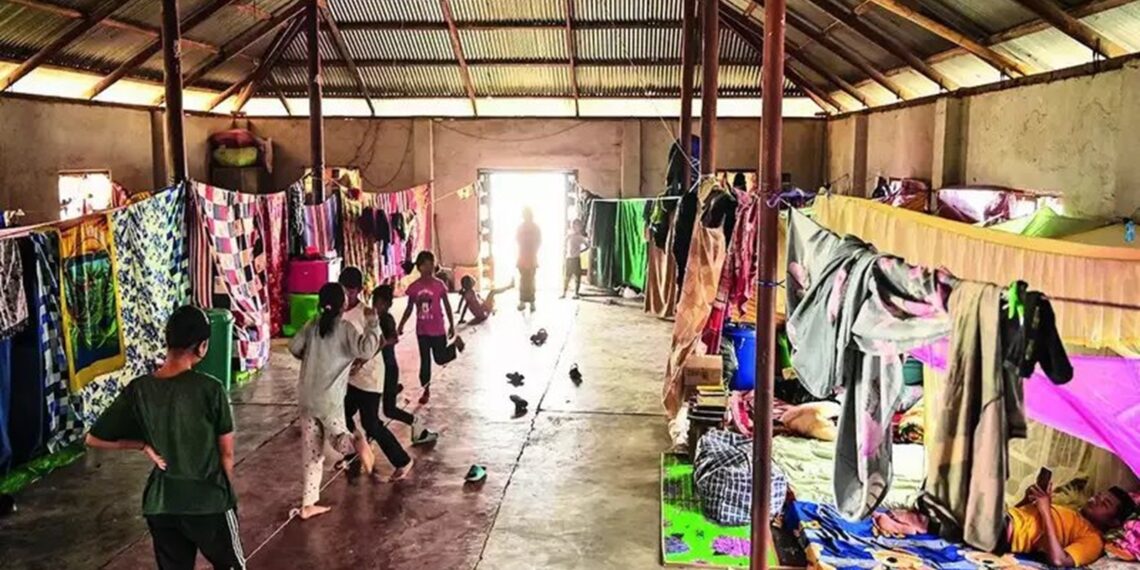New Delhi: An Independent People’s Tribunal examining the ethnic strife in Manipur unveiled its report on Wednesday at the Press Club of India, exposing deep shortcomings within state agencies, the judicial system, and the media in handling what has emerged as one of the country’s gravest humanitarian emergencies in recent times.
The tribunal has strongly criticised both the Manipur government and the Centre for failing to prevent and contain the ethnic violence that erupted in the state on May 3, 2023, leaving thousands displaced and deepening communal divides.
The tribunal, which included legal experts, academics and activists, conducted extensive field visits to several conflict-hit districts such as Bishnupur, Churachandpur, Imphal East and West, Kakching, Kangpokpi and Senapati, in addition to holding sessions in New Delhi.
Testimonies were also collected virtually and supported by written submissions, photographs, videos and official documents.
The report highlights deep-rooted structural and immediate causes behind the unrest, citing historical ethnic tensions, socio-political marginalisation and land disputes.
It said that hate campaigns on social media and divisive political rhetoric served as major triggers for the violence.
The tribunal identified the Manipur High Court’s March 2023 directive recommending Scheduled Tribe status for the Meiteis as the flashpoint that escalated tensions between the Meitei and Kuki-Zo communities.
Describing the violence as “planned, ethnically targeted, and facilitated by state failures,” the jury said testimonies from survivors revealed instances of law enforcement complicity, including allegations that police handed over women to violent mobs.
The report documents killings, dismemberments and widespread sexual violence, many of which went unreported due to fear and lack of institutional support.
The tribunal further observed that healthcare and relief measures were grossly inadequate, with relief camps suffering from poor sanitation, lack of medical facilities and absence of mental health support.
Hospitals were attacked, ambulances were destroyed, and in some cases, treatment was reportedly denied on communal lines.
The report accuses both the state and central governments of failing their constitutional duty, pointing to selective FIR registrations, delayed investigations and the absence of impartial Special Investigation Teams.
It also noted that while the Supreme Court ordered CBI probes into certain rape cases and formed a committee under Justice Gita Mittal, these interventions were narrow in scope and lacked proper follow-up.
ALSO READ: Deep Ocean Mission: India’s big leap toward sustainable marine wealth
The tribunal also criticised sections of the media, saying that print outlets failed to conduct thorough investigations while social media platforms became conduits for hate propaganda and misinformation.
Warning that the continuing unrest, more than 27 months after violence first broke out, reflects a “collective failure,” the tribunal called for urgent reforms.
It recommended judicial accountability, structural changes, action against those who incited violence and a restorative justice process focused on reparations and reintegration.
Without urgent action, it warned, Manipur risks becoming a template for future impunity.















